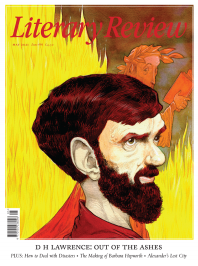Julia Neuberger
An Act of Self-Denial
How to Be a Refugee: One Family’s Story of Exile and Belonging
By Simon May
Picador 320pp £20
There is now a well-established genre of refugee literature, where people who fled Nazi Germany, Austria or Czechoslovakia tell their stories before their generation dies out. Such stories are often fascinating, but their authors’ primary purpose – telling the story before it is forgotten – is to convey to the next generation what it meant to be a refugee, what was taken away and what was gained in terms of freedom, life and opportunity, along with a sense of not belonging anywhere.
But this book is different. At its heart are three Jewish sisters, born in Berlin: Marianne (Simon May’s mother), Ursel and Ilse. This is the story of how they convinced themselves and indeed others, including senior members of the Nazi establishment, that they were not Jews.
May explores a denial of their Jewish roots so strong that it was utterly internalised. They believed it. He traces its intellectual and social origins to the Jewish women salonistes of the 18th and 19th centuries, such as Rahel Varnhagen, and to the poet Heinrich Heine. These two were committed

Sign Up to our newsletter
Receive free articles, highlights from the archive, news, details of prizes, and much more.@Lit_Review
Follow Literary Review on Twitter
Twitter Feed
Russia’s recent efforts to destabilise the Baltic states have increased enthusiasm for the EU in these places. With Euroscepticism growing in countries like France and Germany, @owenmatth wonders whether Europe’s salvation will come from its periphery.
Owen Matthews - Sea of Troubles
Owen Matthews: Sea of Troubles - Baltic: The Future of Europe by Oliver Moody
literaryreview.co.uk
Many laptop workers will find Vincenzo Latronico’s PERFECTION sends shivers of uncomfortable recognition down their spine. I wrote about why for @Lit_Review
https://literaryreview.co.uk/hashtag-living
An insightful review by @DanielB89913888 of In Covid’s Wake (Macedo & Lee, @PrincetonUPress).
Paraphrasing: left-leaning authors critique the Covid response using right-wing arguments. A fascinating read.
via @Lit_Review